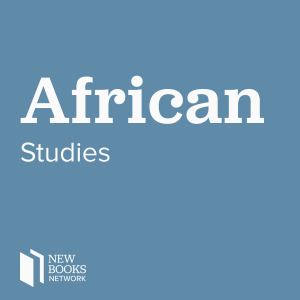
Naomi André, “Black Opera: History, Power, Engagement” (U Illinois Press, 2018)
 2018-08-08
2018-08-08
Naomi André’s innovative new book, Black Opera: History, Power, Engagement (University of Illinois Press, 2018) is an example of a concept she calls “engaged musicology.” Positioning herself within the book as a knowledgeable and ethical listener, André seeks to understand the resonances and importance of opera to today’s audiences, performers, and scholars. To do this, she focuses on seven works and two continents. André places opera in the United States in conversation with opera in South Africa, the only country in Africa that has a continuous operatic tradition from the nineteenth century until the present day. Her work in South Africa began when she traveled with renowned opera singers George Shirley and Daniel Washington to that country as part of a project through the African Studies Center at her home institution of the University of Michigan. There she found a rich operatic life that included the performance of new works, such as Winnie: The Opera by Bongani Ndodana Breen as well as new interpretations of canonical operas such as a South African reimagining of Bizet’s Carmen called U-Carmen eKhayelitsha, both of which she features in Black Opera. The other works she considers are From the Diary of Sally Hemings by William Bolcom and Sandra Seaton, Porgy and Bess by George Gershwin, along with Carmen and two American versions of that opera, Oscar Hammerstein’s Carmen Jones and the MTV production, Carmen: A Hip Hopera.
André’s central concern is how the history of race relations and changing gender roles in both countries impacted the development, performance, composition, and reception of opera. To do this, she provides what she terms a “shadow history” of opera culture to help her readers understand “black operas” (that is operas by black and interracial compositional teams, about black subjects, and the issues around black opera singers) that have been hidden due to social, political, and economic reasons rather the quality of the works and performers. Nestled within the disciplines of musicology, ethnomusicology, African Studies, and cultural theory, this truly interdisciplinary monograph points to a new way to analyze music’s place in the past and the present.
Naomi André is Associate Professor in the Department of Afroamerican and African Studies, Women’s Studies, and the Associate Director for Faculty at the Residential College at the University of Michigan. She received her B.A. from Barnard College and M.A. and Ph.D. from Harvard University. Her research focuses on opera and issues surrounding gender, voice, and race. Her publications are on topics including Italian opera, Schoenberg, women composers, and teaching opera in prisons. Her earlier books, Voicing Gender: Castrati, Travesti, and the Second Woman in Early Nineteenth-Century Italian Opera (2006) and Blackness in Opera (2012, co-edited collection) focus on opera from the nineteenth to the mid-twentieth centuries and explore constructions of gender, race and identity. In addition to serving on the Executive Committee for the Criminal Justice Program at the American Friends Service Committee (Ann Arbor, MI), she brings her expertise on race, politics, and opera to the public through numerous appearances on public panels and symposia, and in the popular press.
Kristen M.
Learn more about your ad choices. Visit megaphone.fm/adchoices
Support our show by becoming a premium member! https://newbooksnetwork.supportingcast.fm/african-studies
More Episodes
Create your
podcast in
minutes
- Full-featured podcast site
- Unlimited storage and bandwidth
- Comprehensive podcast stats
- Distribute to Apple Podcasts, Spotify, and more
- Make money with your podcast
It is Free
- Privacy Policy
- Cookie Policy
- Terms of Use
- Consent Preferences
- Copyright © 2015-2024 Podbean.com





